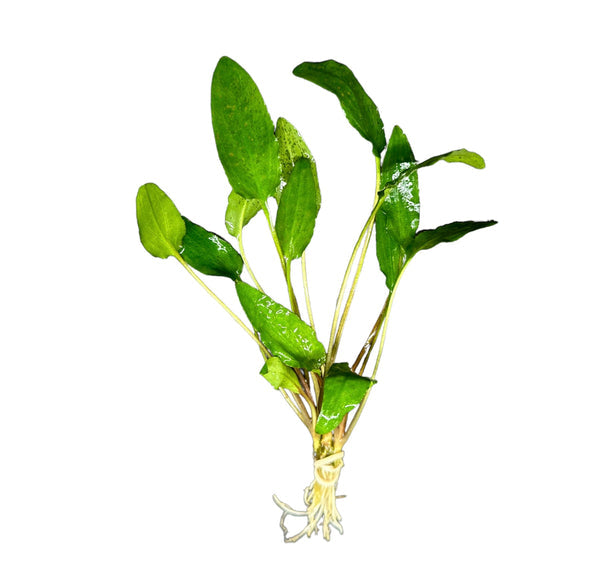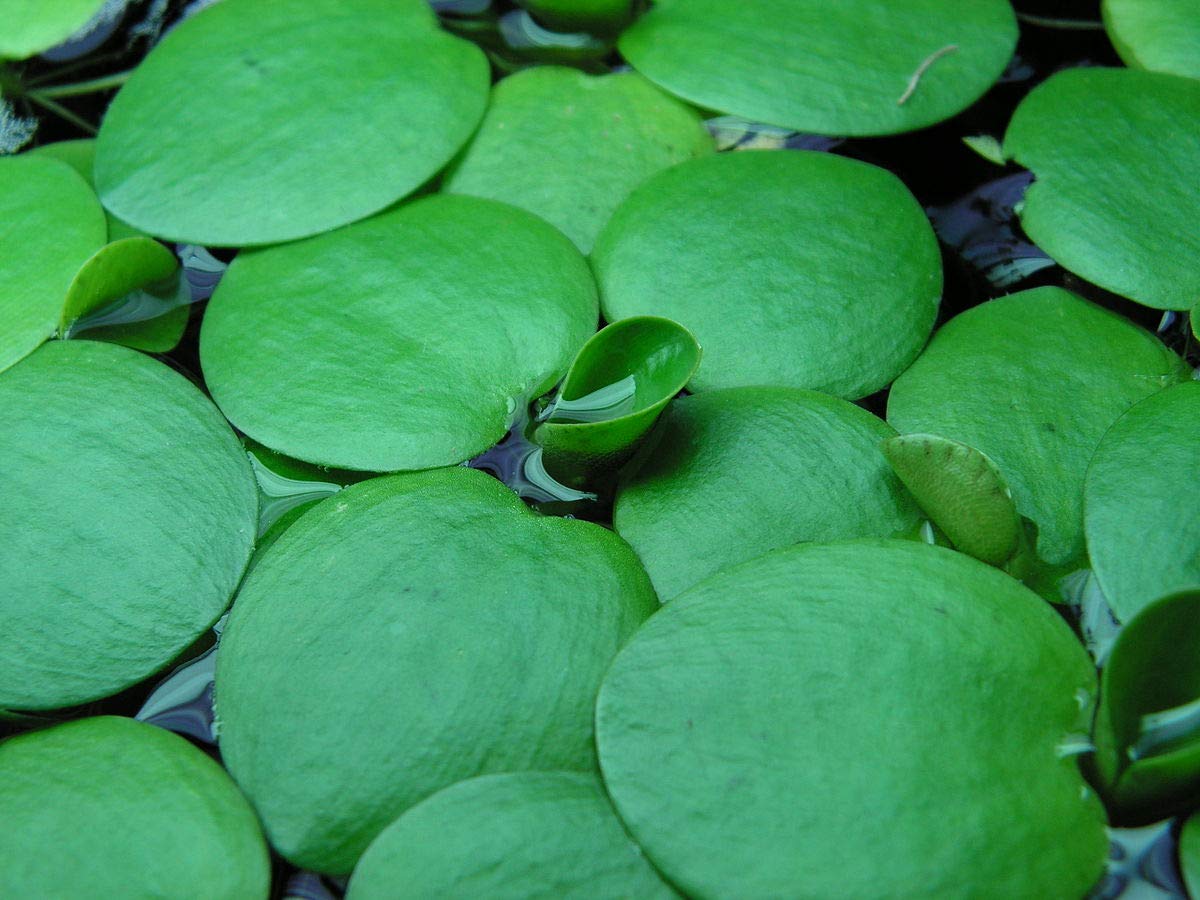BlackWater Aquatics
Cryptocoryne pontederiifolia
Cryptocoryne pontederiifolia
Couldn't load pickup availability
Cryptocoryne pontederiifolia is a bog plant hitherto only found in the northernmost part of the west coast of Sumatra (Indonesia), where it grows in the freshwater tidal area together with the nipa palm (Nypa fruticans). Today, it is know to have been introduced into Singapore, where it grows on swampy ground along forestal rivers. This species has been long known in Europe as aquarium plant and is found in trade regularly. However, in the US it is still quite new and hard to come by.
C. pontederiifolia is quite similar to Cryptocoryne moehlmannii, to which it is closely related and which is found in the same area in nature. However, those varietys commonly found in trade can be discerned quite well regarding characteristics of inflorescence and leaf coloration:
- C. pontederiifolia: the blade of the spathe (pseudopetal) is of a sulphurous yellow or reddish colour on the inside, and the collar is wide and quite high. The leaves are brownish to light purple, especially on the underside.
- C. moehlmannii: the blade of the spathe is of a dark purple on the inside, and the collar is narrow. The leaves are always of a light to olive green, not brownish.
More recent collections from the habitat show a larger variability of the inflorescence, though.
This robust Cryptocoryne species is unproblematic in cultivation and highly adaptable to different conditions in the aquarium. Water parameters may range from soft to hard and from slightly acidic to neutral. Fertilisation with CO2 and intensive light induce more compact growth and a bushier look, whereas medium to low light results in longer stems and overall higher-growing plants.
The pink Crypt needs several weeks to adapt to new conditions and to regenerate, only then will it start growing again. After some time, it picks up speed and grows to a sizable plant rather quickly. In contrast to most other Cryptocoryne species, C. pontederiifolia is not very susceptible to Crypt melt in cultivation. It can be propagated by runners starting from the mother plant, which form a nice group in time.
Its wide leaves, some of them with a slight nubby pattern, make C. pontederiifolia an excellent choice for the middle- or background of medium-sized and large aquaria, where they can be used as an alternative to Anubias. It is also used for plant streets in Dutch aquaria. However, it is also suitable as a focal point in nature aquaria, contrasting dark mosses and grass-like plants. In medium-sized tanks it can even be used as eyecatching solitary plant.


Aquatic Plants
Aquatic Plants are not only the best way to improve the health and overall quality of life for the inhabitants of your aquarium, but also aestheticly pleasing.
-
.
-
.
